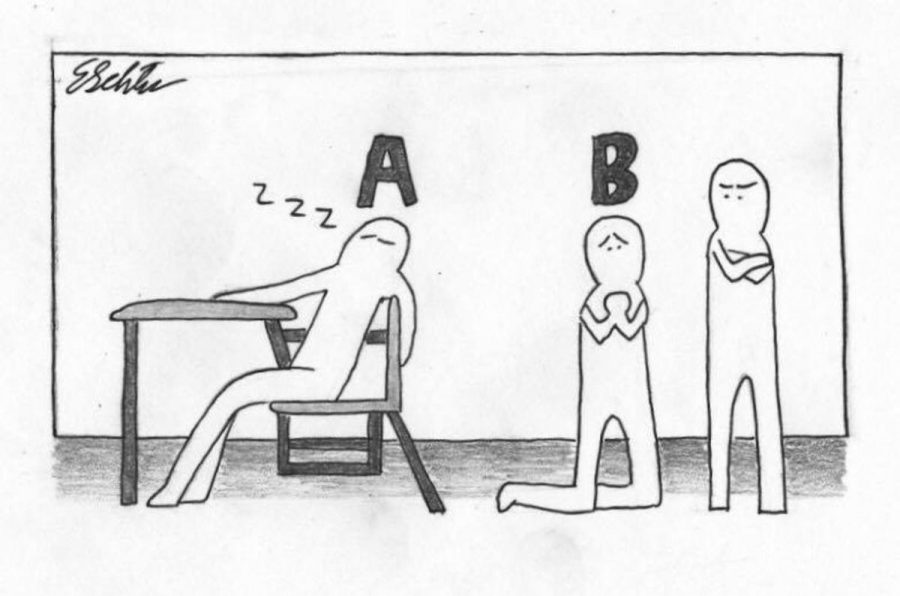Grading policies impact work ethic and bumping
November 17, 2016
MCPS’ new grading policy is in effect, and many students who received As first quarter are embracing the mantra “work smarter, not harder.”
In the new grading system, students who get an A one quarter of a semester and an A or B in the other get an A for the semester. The same rule applies when students go B-C or, C-D, they get a B or C for the semester, respectively.
Though some students think teachers made first quarter more difficult to encourage students to keep their grades and motivation up, many teachers said they haven’t changed the difficulty of the first quarter curriculum.
“I’m hoping that they will work with as much diligence as they did first quarter, even though they got the A,” social studies teacher Colin O’Brien said. “If I do see that a lot of kids are slacking off and getting by with low Bs, then I might, next year, revisit making first quarter more difficult.”
Chemistry teacher Jason Gohn agreed.
“We’re pretty much going on the same path, same grading,” Gohn said.
Some teachers did not change the curriculum at all, but did change how they weighed their graded categories.
“Whereas last year our summative grades were 50 percent of the grade this year they are 60 percent so they are weighted more heavily,” AP Psychology teacher Sheryl Freedman said. “Also in some cases, we did not give as much of a curve on tests unless it was necessary.”
Freedman told her students that she would not be bumping their first quarter grades.
“That was designed to continue student motivation in the second quarter because the way the new grading system is in place is that if the student gets the grade that they want, whether it’s an A or a B, there is less effort they have to give to maintain that grade,” Freedman said.
Bumping refers to teachers changing a student grade to “bump” it to the next letter grade. Junior Harpreet Nagi understands teachers’ hesitation to bump a student’s first quarter grade.
“When the county changed the grading policy, it made it easier to get an A in classes,” Nagi said. “Teachers aren’t oblivious to this fact, so that’s probably the reason why they don’t bump grades like they used to.”
Though O’Brien said he generally doesn’t bump grades, he would be even less likely to bump because of the new grading policy.
“I stress that at the beginning of the year that an 89.4 is a B, and then if they don’t get the A first quarter they can get it second quarter,” O’Brien said.
Though students and teachers are aware of the new policy, the prospect of students slacking off second quarter is still likely to occur.
“Though teachers will decide the terms of their grading, students and teachers are aware of the possibility that students may relax in certain classes in the second quarter,” said senior Neha Gupta said.









